Update 4/19/2021: A very good article by Mari Cohen that accurately captures the debates and divisions currently taking place in Habonim Dror North America around the issue of Zionism in the context of the organization’s history as a Labor-Zionist youth movement can be found here. I can attest to the veracity of the article and personally know all of the people quoted in it. The crisis of identity currently taking place in the movement over Zionism and its relationship to Israel very much mirrors my own.
For most of my life, Israel has occupied much of my thought. I have had a long, fraught, and ever-changing ideological and emotional relationship to Israel. This post summarizes my development from a school kid who only knew about the country in books, to a commited socialist-zionist with dreams of aliya, to a mournful anti-zionist nonetheless committed to the liberation of Palestine and an equitable end to Israeli apartheid.
I have long held a deep “connection” to Israel. However, this connection did not develop naturally, it was externally imposed on me (at least initially). For most of my childhood, despite having little personal connection to Israel, I understood Israel as a place I was supposed to care a lot about, despite my distance to it.
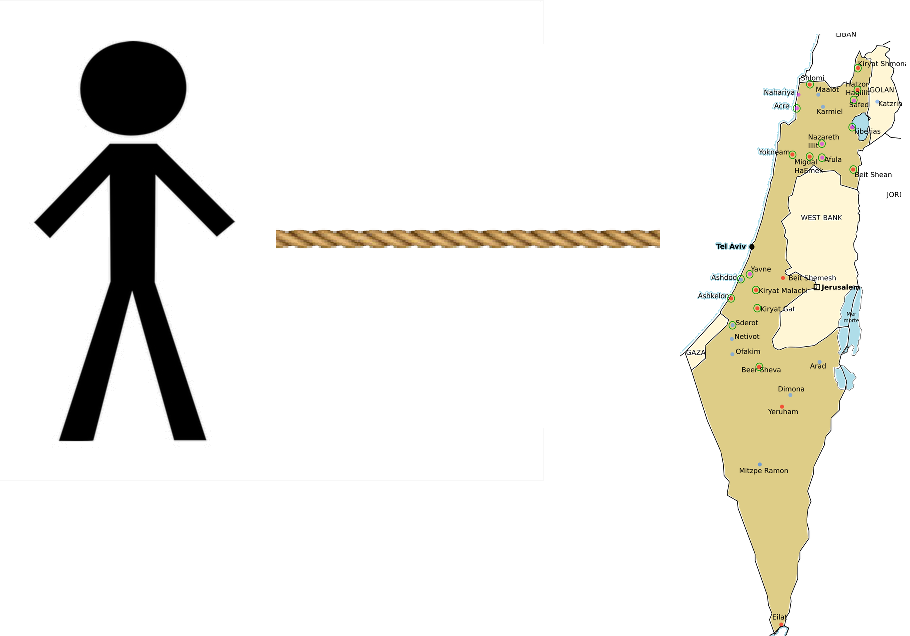
As I have discussed in previous blog posts, there were two main sources for this connection.
- My school, Charles E. Smith Jewish Day School. Here I was taught that Israel was a place I was supposed to “love” and “defend;” a pro-Israel view. I was taught that Israel was the only Democracy in the Middle East and that it must be defended from terrorism, and antisemitic international bias. I personally believe my education on the Israeli-Palestinian conflict was biased and one-sided but I still value it for providing me a space to engage with Israel academically from a young age.
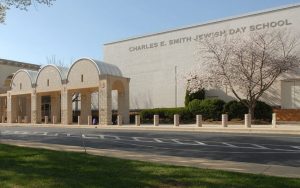
2. My summer camp, Habonim Dror Camp Moshava. Mosh instilled in me the idea that Israel was a place I was supposed to “love” but “question”. At Mosh I was given space to learn about and discuss critical perspectives about Israel. I learned about the fragmentations and inequalities in Israeli society, and, most importantly, was able to confront the violence and injustice of the Israeli occupation in a more honest manner than at school. However, this was still a very liberal-Zionist education and was intended to instill within me a sense of responsibility towards Israel.
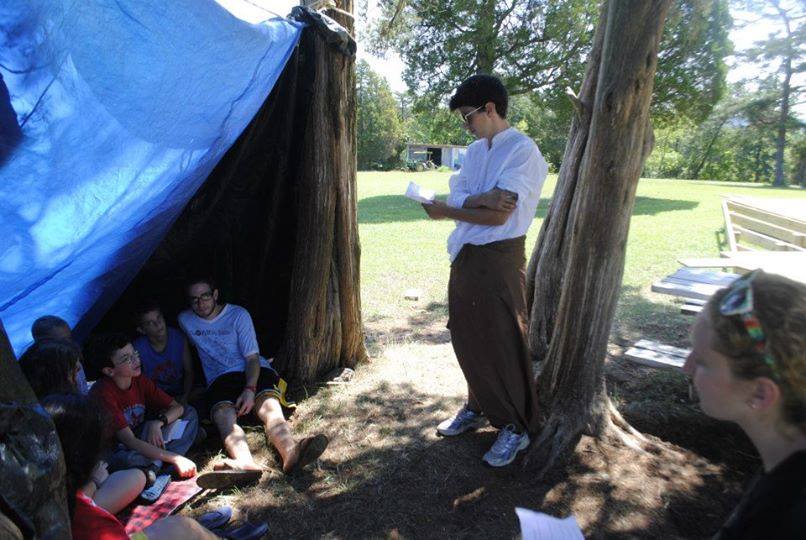
However, I began to feel torn apart by the competing Pro-Israel and Pro-Peace narratives I was being given at school and at camp, particularly concerning the Israeli-Palestinian conflict. I also did not yet have a strong conception of Zionism as something separate and distinct from being Pro-Israel, nor did I have a strong personal connection to Israel.
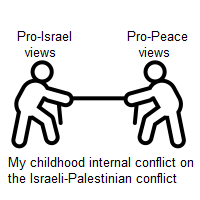
My ideology at this point:

This process started in 2014 amidst Israel’s war with Gaza in Operation Protective Edge.
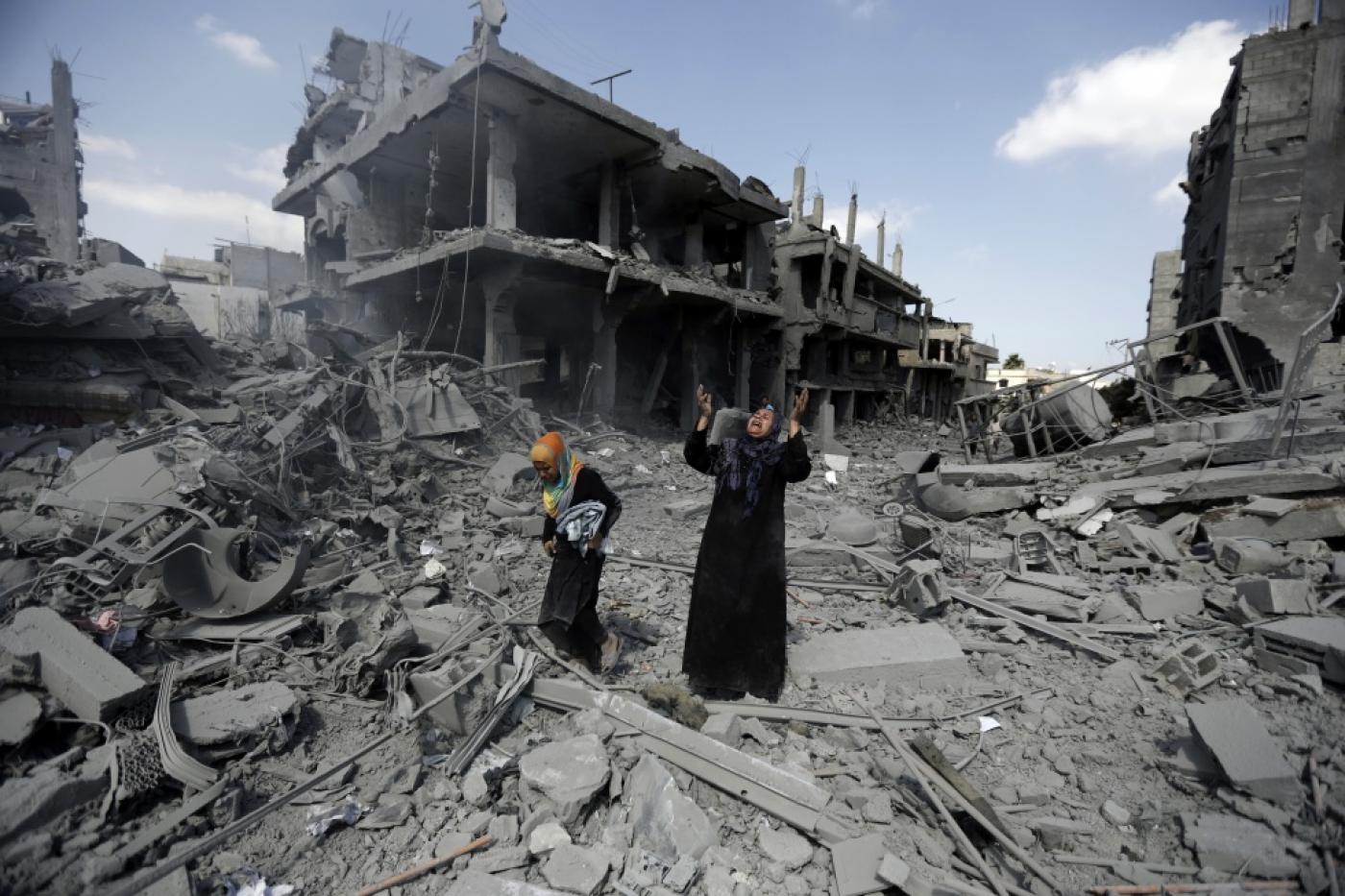
MOHAMMED ABED/AFP via Getty Images. A Gazan woman laments the destruction caused by Israeli bombs during the 2014 Gaza war.
I began to question the far higher Gazan casualty rate, with civilian deaths numbering in the thousands. I began questioning why Israel, a democratic country supposedly morally superior to its neighbors, found it acceptable to bomb hospitals, neighborhoods, and community centers. While people from my Pro-Israel school provided me with justifications and rationalizations for these things, I nonetheless began to question their validity.
I only grew to become more critical of Israel over the years as I educated myself on Palestinian narratives and the truth of Israel’s treatment of Palestinians in the West Bank, East Jerusalem, and Gaza.
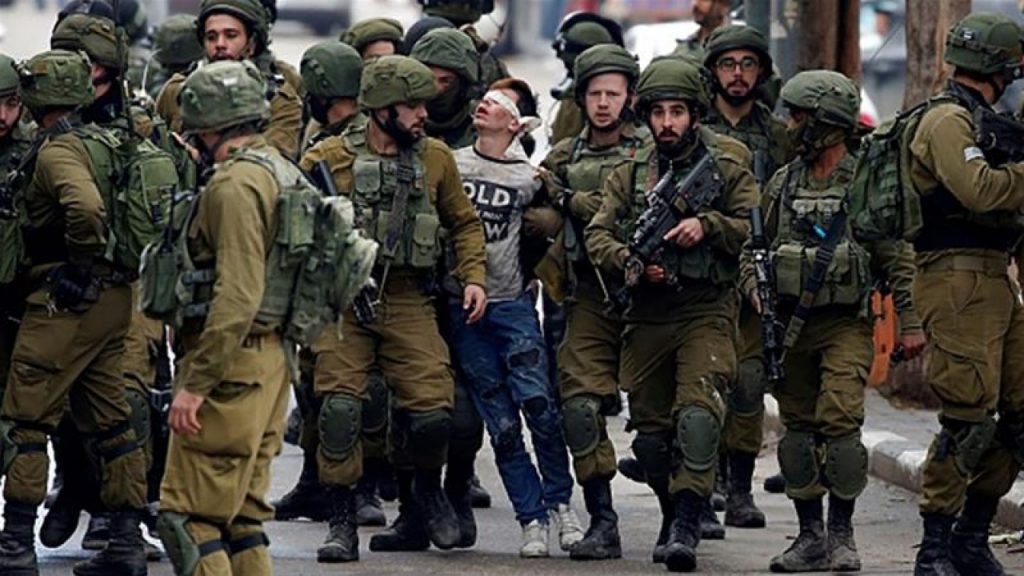
Image from Al-Jazeera. Fawzi al-Juneidi, 16, dragged away blindfolded by IDF soldiers. It is common for Palestinians living in the West Bank under Israeli Military Law to be arrested and imprisoned indefinitely without charges or a trial.
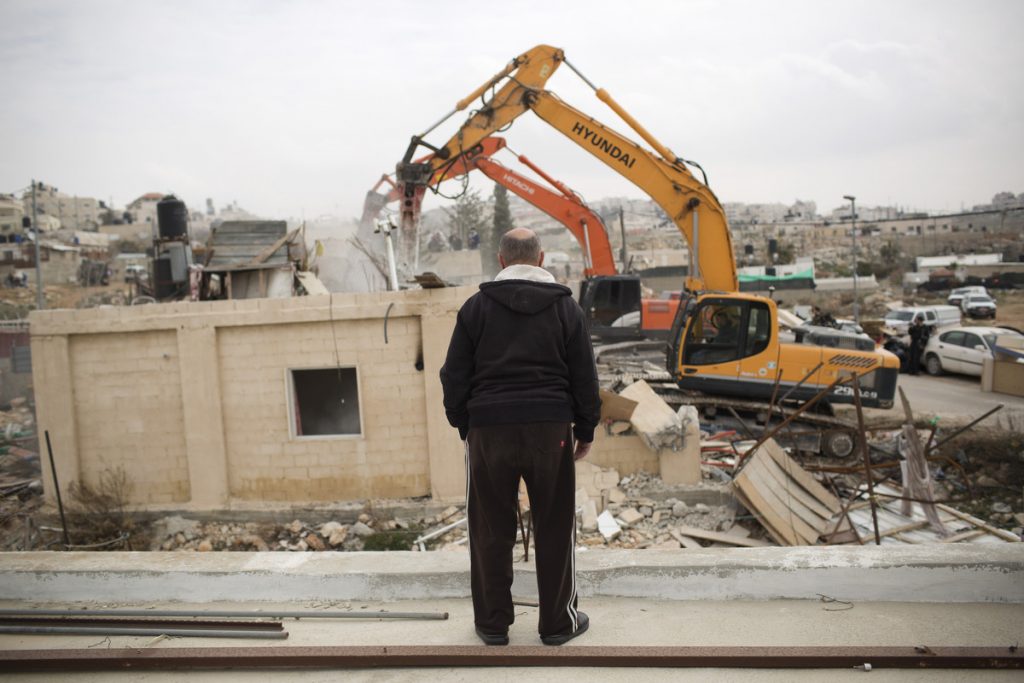
Image from Tali Mayer/ActiveStills. This Palestinian resident of East Jerusalem is one of hundreds to have his home demolished by Israeli authorities.
This internal division became the source for my personal engagement with Israel. I reasoned that if I gained more knowledge of the conflict, I could overcome my internal strife and arrive at an ideological position I could feel satisfied with. So I participated in seminars on the issue.
I was invited to the pilot “Israel Engagement Fellowship” program in 2015 run by JCRC and JFGW. Which sought to provide a “progressive,” pro-Israel understanding of conflict that acknowledged Palestinian narratives.
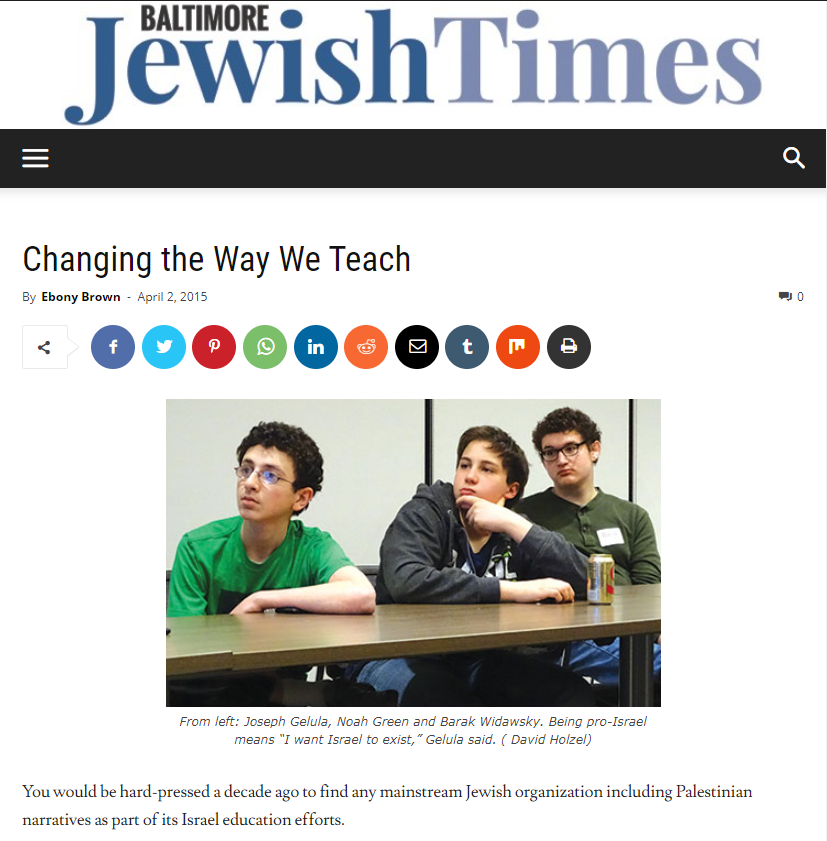
Article about me attending the Israel Engagement Fellowship pilot program. https://www.jewishtimes.com/changing-the-way-we-teach/.
In 2017, I participated in debates about Israeli society with other Israeli youths at an event called “Asefa Yisraelit” (Israeli assembly).

However I did not achieve the ideological satisfaction I sought. As I learned more, the internal strife only increased. In this time, I gained a Zionistic sense of responsibility and connection towards Israel, but I could no longer support the state’s actions with respect to the conflict. I was no longer Pro-Israel.
My ideology at this point:

However, at the same time, my connection and love for Israel only grew stronger and more personal. This is because I began to visit the country on educational programs. One in 2015 for 5 weeks, and a nine-month gap year in 2017. I was no longer distantly connected to Israel, but had accrued personal experiences in Israel.
On my gap year in Israel:
I became enamored with Israel’s natural beauty…
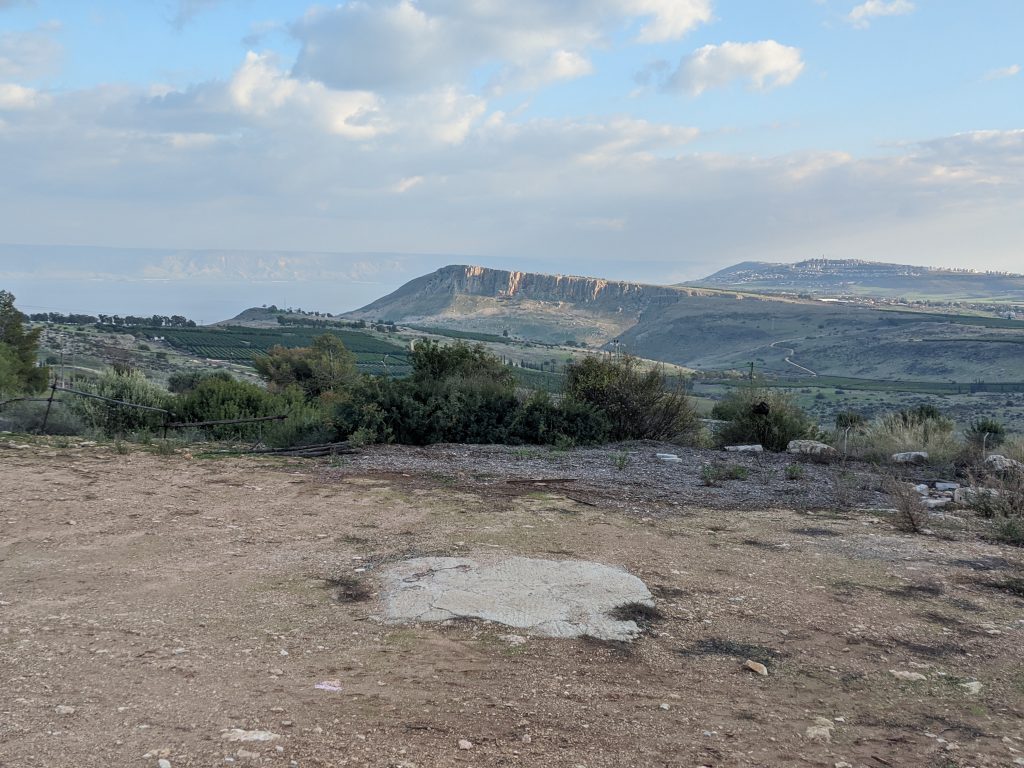
Photo taken by me: from Kibbutz Ravid looking towards Yam Kineret (Sea of Galilee)
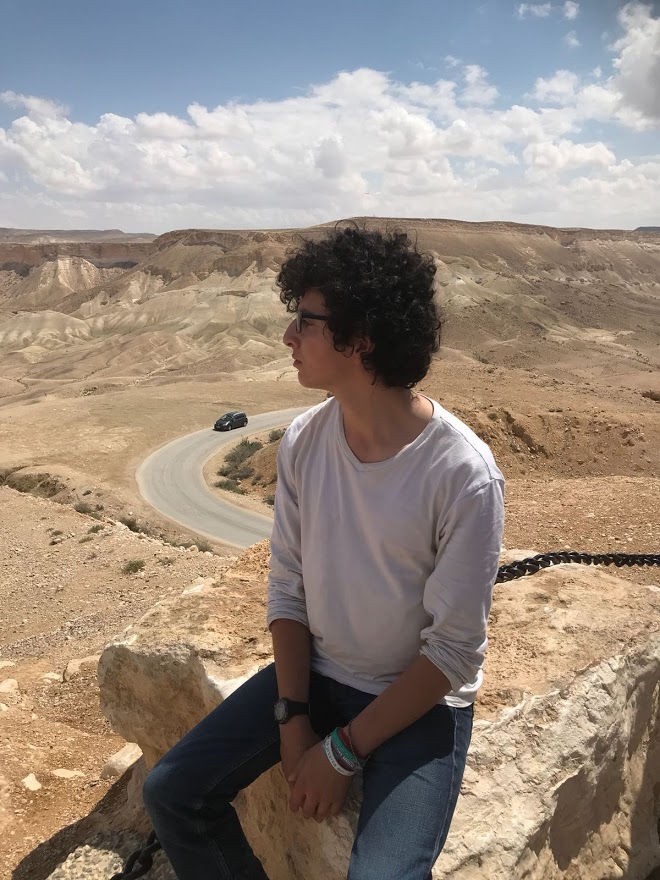
Photo taken by a friend at David Ben Gurion’s tomb overlooking the Negev Desert in Southern Israel
Made friendships with Israelis..
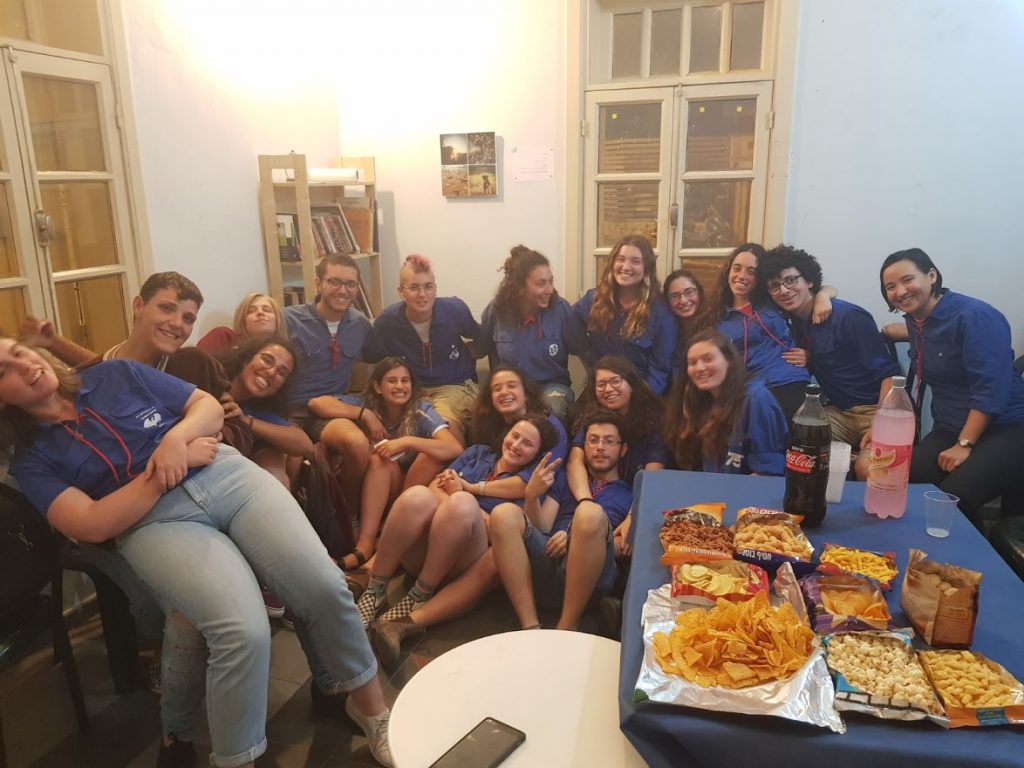
Friends I had made in “Hanoar Haoved v’Halomed” Habonim Dror’s Israeli “Sister Movement”
And received an education on the history of Socialist Zionism. In this education, Zionism was framed as a radical and rebellious struggle for Jewish cultural renewal, self-determination, and the creation of a just society.
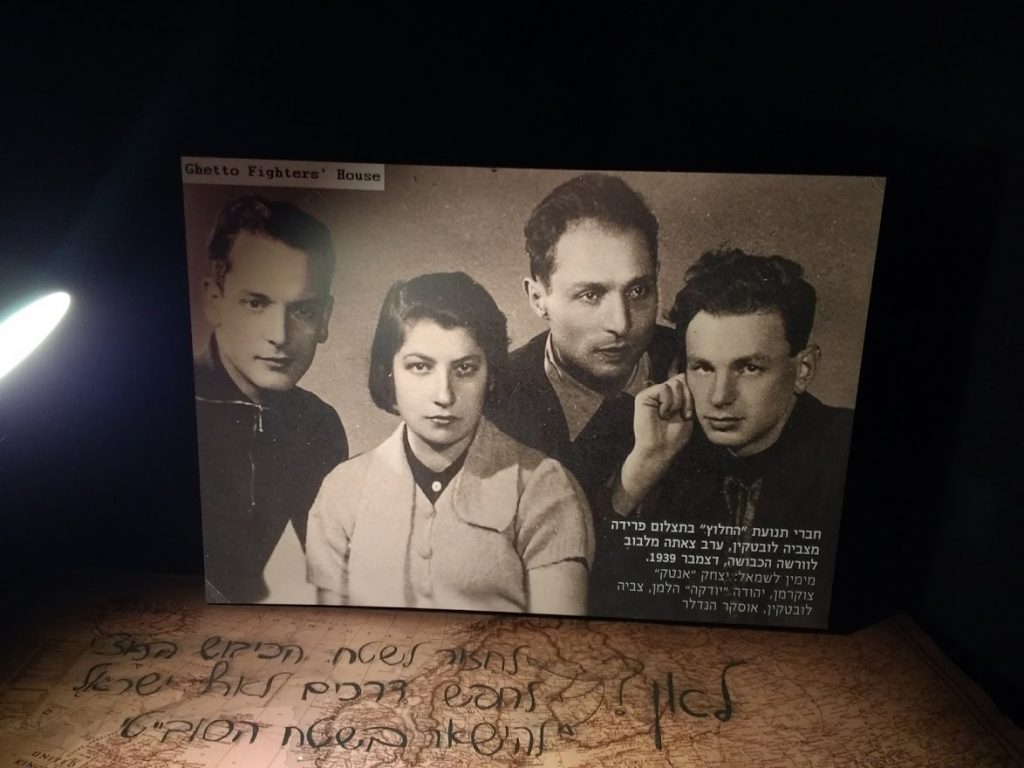
Antek Zuckerman, Yudke Helman, Zivia Lubetkin, and Oskar Hendler.
Zionists who rebelled against the Nazis in the Warsaw Ghetto Uprising. We spent a week in Poland in March 2018 dedicated to learning about Jewish/Zionist rebellion in the Holocaust.
As a result of my experiences on this gap year program, I felt I had achieved the sense of ideological satisfaction I was looking for. While I could not support Israel’s actions with respect to the conflict, I could still believe in Socialist-Zionism as a framework to build Israel into a more just and moral society. In this view, fighting against Israel’s brutal military occupation of Palestinians was bard of the chalutzic work of building Israel into a more just society. This was a project I felt I could invest the rest of my life into. I also fell in love with Israeli culture and the people I met there. Thus I began to seriously consider moving to Israel (“making aliya”) after college.
My ideology at this point:

Unfortunately, this sense of ideological satisfaction did not last. In the time since my gap year I have continued to struggle with my relationship to Israel.

Image (modified) from ShutterStock
Since beginning college, I opened myself more directly to Palestinian perspectives and criticism of Israel. I started following Palestinian social media accounts which documented the horrible violence IDF soldiers and Israeli settlers subjected them to. While I was not oblivious to this violence, I began to question whether liberal zionism was as diametrically opposed to it, or was an effective counter to it, as I had been led to believe.
My break with Zionism came at the end of 2019 with Netanyahu’s announcement of plans to annex portions of the West Bank. Up until that point, I had understood Israel’s policies vis-a-vis occupied Palestinians as one of de facto apartheid, but had staked my Zionist beliefs on the potential for a two-state solution. While these plans did not manifest, it forced me to reckon with how entrenched the occupation was. The two-state solution was dead and Israeli settlers had killed it. With this, I recognized that maintaining my liberal-zionist ideology was not a realistic way to “solve the conflict” but only made me comfortable with Israeli atrocities. Even though this article is about my changing ideologies (these are prompt-driven assignments) I have come to learn that engaging with the conflict primarily as an internal ideological struggle for Jews, decenters the Palestinian struggle against the daily reality of occupation and apartheid and thus makes me complicit in their oppression.
While at the time of writing, I feel uncomfortable labeling myself as “anti-Zionist” I am certainly “non-Zionist.” “Post-Zionist” may be a fitting term. I now lean towards the Pro-Palestinian position though I stop short of believing Israel should not exist.
My ideology at this point:

Currently, my relationship to Israel is fraught with pain and discord. Mentally, I have accepted certain truths and values that have led others I know to completely embrace anti-Zionism and reject any connection to Israel. However, my emotional attachments to Israel have prevented me from following these truths to their logical conclusion, though I believe this too will change. As I have turned my back on Israel, I have been plagued with guilt over the loss of the Israeli friends I made. Currently, as always, I am caught between heart and mind.

While I will always support Israelis who continue to struggle for a brighter future, personally, I no longer expect to become one myself. Even so my resolve to continue learning and engaging has not ceased.
Edit 10/27/21: Since writing this post, what I expected came to pass; I am an antizionist. Through my research of Israel-Palestine as an undergrad I have come to understand that Israel’s policies of occupation and apartheid were not tragic mistakes, instead they neccisarily resulted from Zionism’s inexorable demand for Palestinian land and Israel’s need to maintain Jews’ privliged position within the polity by way of a superficial demographic majority. Israel is founded upon this violence; it could not have come to exist without the Nakba in 1948 in which over 700,000 Palestinians were driven from their homes and barred from returning. This violent dispossesion of Palestinian land continues today, from the destruction of Palestinian villages by settlers and soldiers in the West Bank, to the evictions of Palestinian families in Sheikh Jarrah in occupied East Jerusalem, to the repeated destruction of Bedouin villages in the Negev. I now can admit what Palestinians have said all along: that the name for this violent dispossession of land is settler-colonialism.
The settler-colonial project must be ended. Israel must become a state of all its citizens, with full equality for everyone from the river to the sea. I would be lying if I said that the prospect of losing the world’s only Jewish state and forcing two-peoples who have developed such a strong fear and hatred of each other to live together does not fill me with dread. However, I know that without justice, there will never be peace.

Ed Webb February 28, 2021
On the one hand, this goes against the spirit of the exercise in using so many words. On the other hand, this is an excellent example of using images to enhance and complement the text, so achieves a goal of the exercise. Given the complexities and nuances here, I understand why you chose to explain so much in text.
I hope that in future posts you will consider the explanatory power of graphical elements as complements to your text.
murdougd March 2, 2021
I found your journey through finding your beliefs extremely enlightening. I admire and deeply respect the fact that you always question what you believe, diving deeper throughout every step. I also noticed how along every step you always acknowledged the struggle between heart and mind, something that I’m sure everyone with a passion has experienced. All in all, I really enjoyed learning why you believe what you believe and seeing all of the learning experiences you have had!
Leon July 4, 2021
God Willing, the COVID-19 coronavirus pandemic will end when Zionist Israel gives Palestine back to the Palestinians.